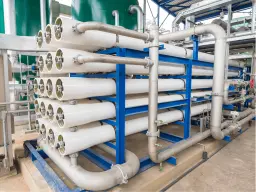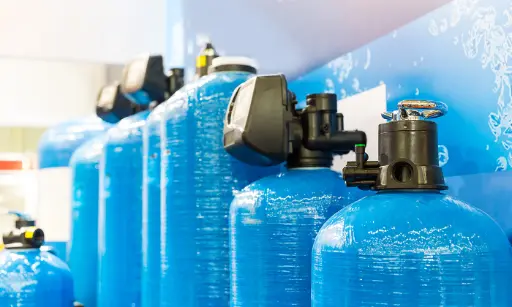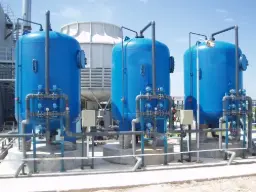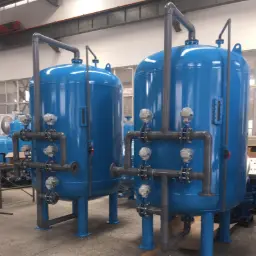Solar Panel Cleaning Water
Solar panels have become a key component in the global shift toward renewable energy. Whether installed on residential rooftops or in large-scale solar farms, these photovoltaic (PV) systems rely on unobstructed exposure to sunlight to generate optimal electricity. However, environmental factors such as dust, bird droppings, pollen, industrial pollutants, and hard water stains can accumulate on the panel surface, significantly reducing energy output. Studies indicate that even a thin layer of dust or mineral residue can decrease solar panel efficiency by up to 20% or more in extreme cases. Because of this, regular cleaning is essential to maintain peak performance and protect your long-term investment.
One critical yet often overlooked factor in solar panel cleaning is water quality. Using untreated or hard water can leave behind mineral deposits and streaks, negating the benefits of cleaning. Poor water quality may also promote corrosion or surface damage over time. As a leading provider of industrial-grade water treatment systems, Filtox offers advanced solutions designed to supply high-purity water tailored for solar panel maintenance. By leveraging technologies such as Reverse Osmosis (RO), Deionization (DI), and specialized filtration, operators can clean solar panels effectively without leaving harmful residues. This approach not only improves instantaneous power generation but also prolongs the lifespan of the panels by reducing chemical wear and tear. In the end, the right water treatment strategy is essential for anyone serious about maximizing the return on their solar energy investments.
Related Products for Solar Panel Cleaning Water Treatment

Reverse Osmosis (RO)
RO systems push water through a semi-permeable membrane to remove dissolved salts, minerals, and contaminants. The resulting low TDS (Total Dissolved Solids) water ensures that no chalky deposits or streaks remain on the panel surface after cleaning.

Activated Carbon Filtration
Pre-filtration stages, often including sediment and activated carbon filters, remove larger particles, chlorine, and organic compounds. This step not only improves water clarity but also protects downstream equipment like RO membranes from premature fouling.

Water Softener
These systems use resin beads to replace undesirable ions in the water (e.g., calcium, magnesium) with harmless alternatives like sodium or hydrogen. Ion exchange effectively reduces hardness, preventing scale formation and extending the panels’ cleanliness period between washes.

Deionized (DI) Water
DI systems eliminate ions such as calcium, magnesium, and other minerals that can lead to scaling and residue. The ultra-pure water produced is especially effective for sensitive surfaces like solar panels, as it dries quickly and leaves virtually no spots.
Advantages of Solar Panel Cleaning Water Systems
- Enhanced Energy Yield
By ensuring residue-free cleaning, solar panels can operate at or near their maximum rated efficiency. The immediate benefit is a noticeable boost in daily energy output, directly translating into cost savings or revenue increases. - Prolonged Panel Lifespan
Mineral-free water reduces abrasive deposits and corrosion risks, helping protect the sensitive coatings on PV modules. Lower mechanical and chemical stress means fewer surface defects over the long term. - Reduced Maintenance Costs
High-quality treated water lowers the frequency of re-cleaning due to spotting or streaking. Panels remain clean for longer durations, meaning reduced labor and operational costs for maintenance teams. - Environmental Compliance
In regions where strict wastewater regulations apply, using advanced treatment systems can help minimize harmful runoff. RO or DI waste streams can often be managed responsibly or partially recycled, reducing the overall ecological footprint.
Challenges and Solutions
- Challenge: High TDS and Hard Water
Solution: Integrating Reverse Osmosis or Ion Exchange technologies can effectively reduce high TDS levels, eliminating the risk of visible streaks or residue left behind after cleaning. - Challenge: Scaling and Mineral Buildup
Solution: DI and softening solutions address scale-forming minerals such as calcium and magnesium. Panels cleaned with soft or deionized water remain spotless for longer periods, reducing cleaning frequency. - Challenge: Large-Scale Cleaning Operations
Solution: In utility-scale solar farms, water usage can be substantial. Filtox supports water recovery and recycling strategies, enabling operators to reuse a portion of the treated water, thereby lowering operational costs and environmental impact. - Challenge: Equipment Protection
Solution: Pre-filtration using sediment and activated carbon filters safeguards downstream components like RO membranes from clogging or damage, ensuring system longevity and consistent water quality. - Challenge: Seasonal and Environmental Variations
Solution: Automated monitoring and control systems can adjust treatment parameters in real-time based on incoming water quality, ensuring stable cleaning results despite seasonal or local fluctuations in water composition.
Frequently Asked Questions (FAQs)
- How often should I clean my solar panels?
This depends on your local environment—dusty, coastal, or high-pollen areas may require more frequent cleaning. Monitoring energy output can help you determine when efficiency drops enough to warrant a wash. - Is deionized water always necessary?
While not mandatory for every application, DI water is optimal for leaving panels spotless. If your panels are showing persistent water spots, upgrading to a DI system can be highly beneficial. - Can I reuse water from the RO reject stream?
Yes. Many industrial-scale operations incorporate a secondary recovery system to recycle RO concentrate for non-critical uses or further treatment, enhancing overall sustainability. - Will these systems damage the solar panel coating?
No. Properly treated water is far less likely to cause damage than untreated hard water or harsh chemical cleaners. Also, technologies like DI water help avoid abrasive mineral particles. - Does Filtox provide maintenance services?
Yes. Filtox offers comprehensive support, from system design and installation to regular servicing, helping you keep your water treatment system running efficiently.